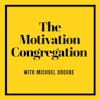Exploring Free Will and the Wisdom of Decision Making: Spiritual Insights from Torah
What decisions are you making, and how are they shaping your life? Imagine uncovering the profound wisdom that guides our decision-making process from a spiritual perspective. We promise this episode will illuminate your understanding of how past decisions constitute our present state and how every moment is an opportunity to make choices leading us on the path of good.
We delve into the captivating realm of free will, the inherent power each of us possesses that enables us to act for better or worse. We also explore how the Torah, with its infinite wisdom, can often be the compass guiding us through uncertain decision-making territories. This episode will provoke you to consider the mutability of human laws and contrast it with the immutability of the Torah's commandments. Ultimately, we want to inspire you to make decisions that are right in the eyes of man and, more importantly, in the eyes of God. Don't miss this enlightening journey.
Join the WhatsApp community for daily motivational Torah content! JOIN HERE
----------------
- SUBSCRIBE to The Weekly Parsha for an insightful weekly shiur on the Parsha of the week.
- Listen on Spotify or the new Jewish music and Podcast streaming platform 24six!
- Access all Torah talks and listen to featured episodes on our new website, themotivationcongregation.org
----------------
Questions or Comments? Please email me @ michaelbrooke97@gmail.com
A human being is the sum total of his life's decisions. At the spot that you currently stand, it is basically one big summary, a synopsis of the life's decisions, what you have decided to do at certain points of your life. We have b'chira, we have free will and bed'erech, she'adom rotsel, leylech molichin, osso. On the path that a mensch wants to go, they will lead him. You can do what you want, for bed'ere or for worse, and the exciting part is moving forward. We have b'chira, the next second to go ahead and jump onto the good path, nothing holding us back. What should be, though? If you have an uncertainty, some ambiguity, how you should decide on a current decision, you just don't know. Well, the Almighty gave us his divine Torah, and v'ha fukh b'ha fukh b'ta kula b'ha, the time that tells us, probe the waters, the oceans, the depths of the Torah to find the answers. You see everything there, for everything is in the Torah. So look inside and find your answer. But what should be if you're looking for something and you don't find it? You're looking for a certain question. You don't know what to do, and you open the Torah and you still don't find your answer. How should you govern yourself? What should you do, says Rashid, says the Remban On a verse in our parshah, parshah, sve'eschana, that there is an overarching statement, a clarion call that every Jewish person should remember in any sort of suffix, any sort of doubt in his decision making. You should remember the osisa, the hayashar, the hatov to do that which is straight and that which is good. This means even the fnim Mishuris had din at times to go above the letter of the law. If two people in real estate can make the same money but it actually works out better for your friend who happens to be living next to this property, you can get paid and he can get paid. But if it doesn't hurt you and it helps him, dina de Bar Metsra, let him have it. Do what's proper, what's normal. If someone should lose their money God forbid, and they owe you money you have the right to take their possessions. You do with the right ways, following Hazal, and if they should get their money back, give them their possessions back and take the money. Don't keep their possessions. Do what is straight and do what is right. The Gemara above them at Sia tells us what you should remember, says the great Mashiach, that there are two words that change the entire meaning of what it means to do what is straight and what is good. And without these two words actually the next two words in the apostolic, then the first three mean nothing, and that is that you should do what is straight and what is good. Be'ene ha'chem in the eyes of God, for the ways of man and the laws. They change what is in and what is out. It flip flops. There were times that even the act of brismila, circumcision, was deemed barbaric. And in 2023, who can keep track, without their heads spinning in circles, as to what is even mutter and what is even usur? Things change. Laws change based on the needs of what the person making the laws and what society are. But the Tayra's laws, the 613, are immutable, untouchable. You cannot add to them, you cannot subtract from them, you cannot change them. It's our job in decision making to do what is straight, to do what is proper not just in the eyes of man, or most definitely not in the eyes of man, but those sometimes are crooked and they very frequently change but to do what is, asesa v'hayosha, what is straight, the ha'toid be'ene ha'chem in the eyes of God.
New to The Motivation Congregation?
Here are some great episodes to start with.










